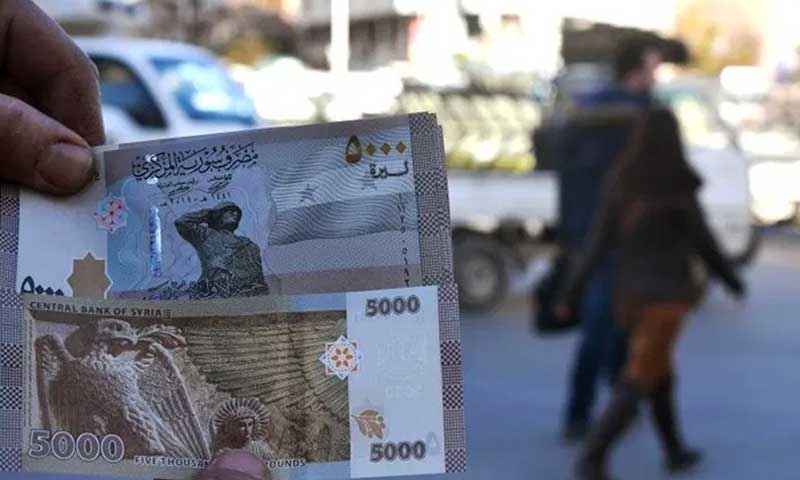Employees in al-Hasakah have been waiting for weeks to receive the financial grant issued by the Syrian regime leader last June on the occasion of Eid al-Adha. The al-Hasakah Post Office refuses to give them their dues due to a “lack of liquidity.”
Employees in al-Hasakah province complained about their inability to receive the financial grant allocated to them and retirees as well. They noted that they were informed before Eid al-Adha that the payment for retirees would be delayed until after the holiday, but they have not received it to this day.
Mahmoud Turki al-Mohammed (62 years old), a retired employee of the Consumer Corporation and a resident of Qamishli city, northern al-Hasakah, told Enab Baladi that he has not yet received his salary nor the grant that was supposed to reach him before Eid al-Adha in the second week of last month.
He added that he went to the Qamishli Post Office before Eid and was informed that the grant payment would be delayed until after the holiday due to a lack of liquidity.
A few days after the holiday ended, al-Mohammed returned to the post office, but he was told to go to the main post center in al-Hasakah city. However, he preferred to wait as the transportation cost from Qamishli to al-Hasakah would consume half of his salary.
On June 10, the Syrian regime leader Bashar al-Assad issued Legislative Decree No. 17 of 2024, which mandates a one-time financial grant of 300,000 Syrian pounds for state employees, both civilian and military, and pensioners.
Maysa Mahmoud al-Marei, a teacher at the Directorate of Education of the regime government in al-Hasakah, told Enab Baladi that since the grant decision was issued, she has been going to the Educational Complex in Qamishli city to collect her financial dues. However, the employees informed her repeatedly that the financial allocations had not yet arrived.
She added that two weeks have passed and she has not yet received her dues, which are worth no more than $20.
Earlier, Finance Minister of the regime government, Kinan Yaghi, told the local newspaper, Al-Watan, on June 11th that the total financial allocation for the grant is about 900 billion Syrian pounds, noting that its funding will come from the state treasury.
He added that the necessary financial allocations for this grant are “ready at the ministry” and will be transferred directly from the state treasury to government entities in the administrative public sector, while economic sector entities can disburse the grant from their own allocations.
The regime-controlled areas are witnessing continuous increases in the prices of food and essential items, further deteriorating the purchasing power of citizens.
There are 16.7 million people in Syria in need of humanitarian assistance, an increase of 9% from 2023, according to estimates by the United Nations High Commissioner for Refugees (UNHCR).
Around 80% of Syrians will need some form of humanitarian assistance in 2024, according to a statistic issued on February 12 by the World Food Programme (WFP) regarding the number of people suffering from food insecurity in Syria.
About 55% of the population in Syria, or 12.9 million people, suffer from food insecurity, of whom 3.1 million suffer severely from food insecurity.











